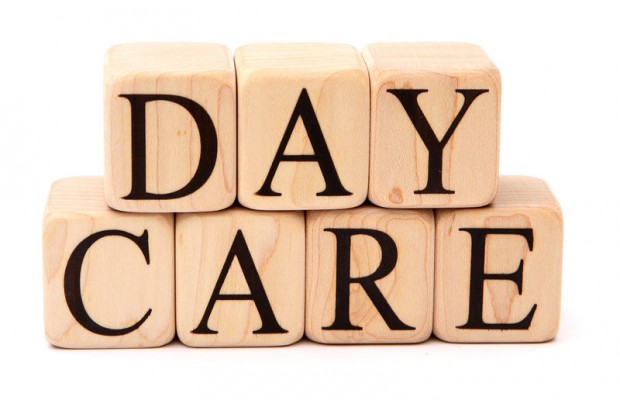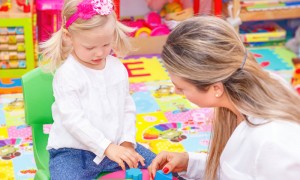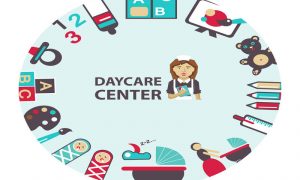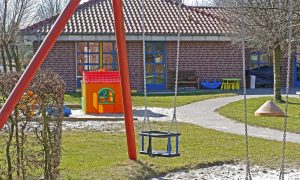Whether you’re a new or established daycare provider, it may interest you to know you can take advantage of expenses resulting from running your home-based or free-standing daycare center. It’s important for you to claim any and all tax deductions for your daycare that you’re allowed—and there are literally hundreds of items you can deduct—so that you can return more cash to your business.
IRS Code Section 162(a) says you can deduct an expense that’s necessary and usual, or ordinary for the business. That means the ordinary expenses are an accepted, recurring, or common expense. In comparison, a necessary expense is an expense that’s appropriate for your childcare business. For instance, it’s possible for you to deduct a portion of the cost of buying a dishwasher that’s used to wash and sanitize the plates and cups used by children even if it’s possible to wash these items by hand.
Importance of Recordkeeping
All businesses must keep records. IRS Childcare Provider Audit Guide (2009) says that daycare provider businesses, including babysitting services, family day care operators, childcare centers, or Kith and Kin type providers, must report income if the business activity represents taxable income. Allowable business expenses can offset the amount of taxable income you may owe to IRS.
The importance of record keeping can’t be overstated. The Childcare Provider Audit Guide indicates that many daycare businesses receive cash payments and buy items they later deduct in cash. This practice can make it difficult to prove expenses later in an IRS audit.
IRS says that you must pay self-employment tax on net income from the business unless you operate under a corporate structure. Net income is the result of subtracting expenses from gross income derived from operations of your daycare business. Daycare income may include money received from parents, food programs like Child & Adult Care Food Program (CACFP), other business entities, non-profit organizations, or government subsidies.
Each state requires licensing of daycare businesses. Your state might require you to report attendance and additional information. If you have many toys, a commercial kitchen, a swimming pool, playground equipment, etc., at your facility, it’s important to keep records concerning purchase, upkeep, maintenance, or donation of items when you replace or upgrade them.
You can’t claim time spent to clean your house or do yard work because IRS will assume you automatically perform these tasks whether you have an in-home daycare business or not. You’re allowed to claim items that involve added work that result from the daycare business.
For instance, IRC Section 162 says that if children of the daycare play in your yard as a regular ongoing activity, your expense to maintain the outdoor environment (such as paying a lawn care service) includes an element of business usage and may be partly allowed as an expense. Detergents used to wash items used by children and the washing machine/dryer used to launder these items are also a business expense that may be allowed.
The bottom line here is that it’s essential to have a recordkeeping system in place. By tracking income, expenses (including items like repairs and utilizes), deductions, meals, and snacks, and CACFP, it’s easier to do your taxes and defend your tax returns in the event of an IRS audit.
General Business Expenses
Tracking general business expenses like utilities and repairs can save you money at tax time. Costs of electricity, natural gas, water, trash pickup, phone or fax (if dedicated business lines), internet access, cable, etc. are partially deductible if you operate a home-based daycare business.
Home expenses, including property taxes, house depreciation, mortgage interest, and property & casualty insurance may be partially deductible. If you rent the property, you may be able to deduct a percentage of your rental payment.
If you made improvements to your home or facility for the daycare business, you may deduct a part of these expenses, including insulation, fences, furnace, patio, remodeling (area used for daycare business activities), floors, etc.
As always, discuss your daycare general business expenses with your CPA or financial adviser. IRS points out that daycare business providers are entitled to deduct a business use portion. Some deductions, like depreciation of a vehicle you use in the daycare business, may be subject to depreciation. See IRC Section 280F to learn more.
Deductions for Your Center
Some of the possible deductions for your daycare center include:
- Car travel, such as claiming qualified business miles driven to take children on field trips, perform errands related to the business (such as car trips to and from the bank), or attend continuing education classes to improve skills used in a daycare business;
- Capital purchases, such as durable items you expect to last more than a year that cost at least $200.00, including playground equipment, cribs, or high chairs;
- Business office supplies, such as postage, office ledgers, printer toner and ink, receipt books, paper, pens, or pencils. Separate personal office supply expenses from those used in the daycare business;
- Supplies for the daycare, such as diapers/supplies, child-proofing caps or devices, cups/bottles, formula, laundry/cleaning supplies, etc.;
- Professional fees and licenses, memberships, and dues, such as the cost of a license, certification, or professional association;
- Advertising related to the business, including online or direct mail to help the business grow;
- Business use of your home (as a licensed daycare business);
- Food and snacks, if you provide snacks or meals to children in the daycare center;
- Continuing education, as part of maintaining your license or to improve your skills, you may need to pay for CE hours or classes at a local college or university.
Regular Use
If a certain area is in business use (in a continuous, ongoing, or recurring manner), the area may be considered “regular basis” on your tax return. For instance, one of your bedrooms is used daily for children’s naps. However, if the bedroom is only used every now and then for naps, it’s not a viable regular basis deduction.
Food and Snacks
Food and snacks represent a large potential tax deduction. IRS says you don’t need to save receipts because a standard meal rate may be used. Why not save receipts? If your costs are higher than the standard rate, discuss this with your accountant. You must track meals served and attending in your recordkeeping.
If you give gifts to your daycare attendees, IRS says you can deduct up to $25 per child each year.
The U.S. Department of Agriculture Child and Adult Care Food Program (CACFP)
CACFP helps low-income families to afford day care. About 3 million children and 90,000 adults receive CACFP.
You must have meal tracking software as part of your recordkeeping process.
Using Daycare Management Software
Taking as many legal deductions to reduce the cost of operating your daycare business is your right. However, without an effective daycare management software solution (including accounting modules to store records and keep your data organized), it’s more difficult to focus on the enjoyable activities related to running a top-quality daycare business. An effective daycare software package will allow you to easily manage expenses, track your meal and snack plans, among many other administrative tasks.
About the Author
Jeffrey Thomas is the President of ThomasKelly Software Associates. ThomasKelly specializes in administrative education solutions, including EZChildTrack, online childcare management software. In his free time, Jeffrey enjoys spending time with friends and family, biking, and watching any Houston-related sports.










No Comments